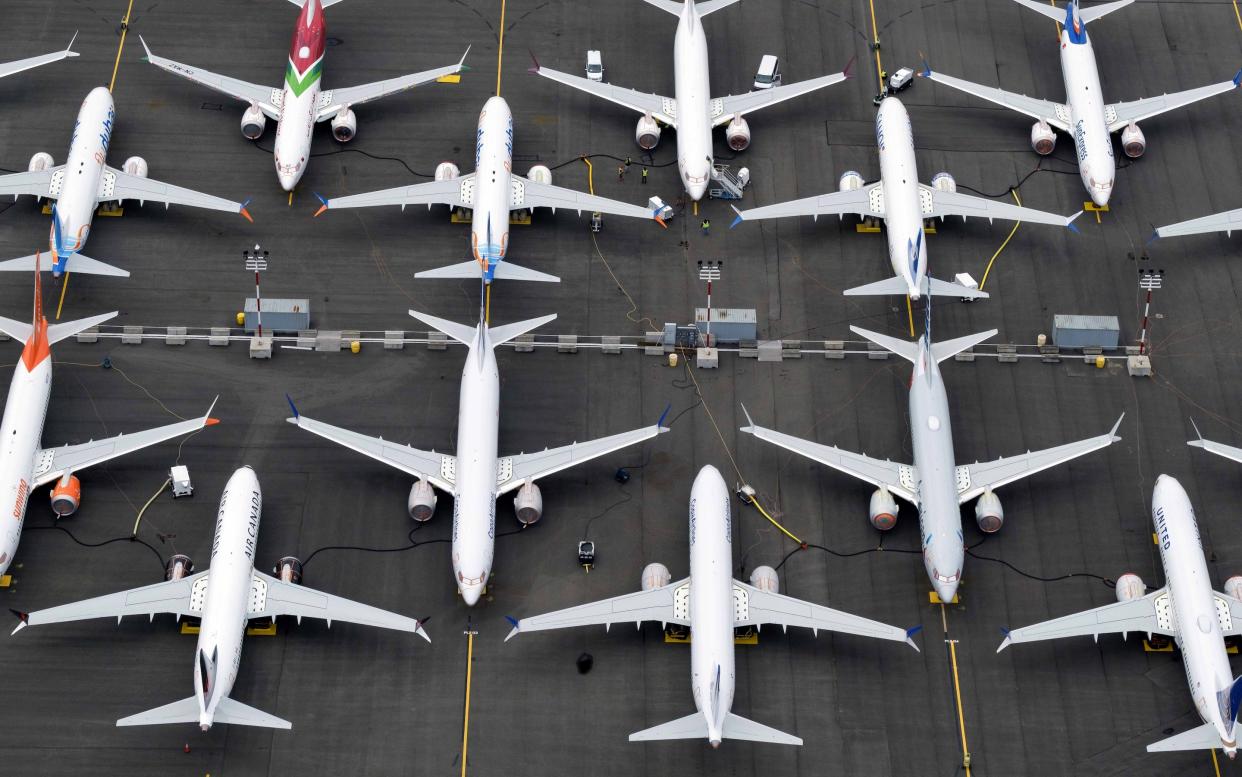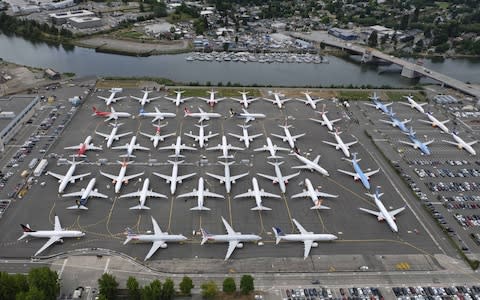Former Boeing engineer admits 'my family won’t fly on a 737 Max' - when will it be deemed safe?

As the problems to beset the 737 MAX show no sign of abating, a former Boeing mechanic has said his family would not fly on the beleagured aircraft.
Adam Dickson, who served the US manufacturer for 30 years and led a team of engineers who worked on the plane, an updated version of the popular 737 aircraft, also told the BBC that the production line for the MAX was under-funded. "Certainly what I saw was a lack of sufficient resources to do the job in its entirety," he told Panorama.
Referring to the new MCAS technology introduced on the MAX, Dickson went on to say: "My family won't fly on a 737 Max. It's frightening to see such a major incident because of a system that didn't function properly or accurately." Boeing denied the claims.
The plane is currently undergoing intensive testing and evaluation by both its Seattle-based manufacturer and the Federal Aviation Administration (FAA), in the wake of the two similar crashes - one in Ethiopia in March, the other in Indonesia last October - which claimed hundreds of lives. Investigations into both crashes are still ongoing.
Though the aircraft does not look set to be certified safe again until the end of the year, at the earliest, it is highly likely that once the FAA gives the green light those carriers that own 737 MAX, including Tui, Norwegian and United, will reintroduce them onto their schedule.
So how would you feel about boarding one?
What is wrong with the 737 MAX?
Last month a new “potential risk” was identified in the aircraft - an updated version of the 737, one of history’s best-selling planes - concerning the ability of pilots to reassert control if an automated flight handling system pushes the plane downward, sources familiar with the matter said.
The issue is not a far cry from the MCAS anti-stall system at the centre of both the Lion Air and Ethiopian Airlines crashes, which led aviation authorities around the world to ground the plane. Boeing has since spent nine months attempting to apply a fix, hoping that a software update would restore confidence in the aircraft.
In the wake of the Ethiopian Airlines crash in March, it emerged that pilots had logged numerous complaints and concerns over the MAX, reporting issues on an aviation safety database set up by Nasa.
At the beginning of June, Boeing said there was also cause to check wing components on the 737 MAX.

When will the plane return to service?
Boeing has said the safety of the aircraft remains the company’s highest priority and that it would not offer the aircraft up for recertification “until we have satisfied all requirements… of the MAX and its safe return to service”.
Prior to the latest developments, there had been speculation the aircraft could be back in service by August. However, US airline United has now extended the absence of the plane from its flying schedule until November 3, affecting around 5,000 flights through September and October.
It is likely the FAA will first declare the plane safe before other regulators, including the European Union Aviation Safety Agency (EASA).
Who flies the 737 MAX?
Domestic travellers in the US are most likely to have come across the 737 MAX, with Southwest counting 34 in its fleet, American 24 and United 14. In the UK key owners include Norwegian Air, with 18, Tui fly, with 15, and Turkish Airlines (11), Lot (five) and Icelandair (three).
Last month, IAG, which owns British Airways, announced a huge order for 200 planes from the MAX range, in a move seen as a vote of confidence in Boeing. Ryanair, too, has more than 100 on order, with chief executive Michael O’Leary signalling that he is prepared to buy more - though he also warned of possible redundancies should the model stay grounded for longer than expected, saying the new planes might not be ready by next summer unless Boeing “gets its s**t together”.

Will the 737 MAX be safe?
The crux of the return of the MAX is perhaps not that the regulators deem it safe but whether passengers will be happy flying the aircraft.
Earlier in the year, as concerns mounted over the safety of the plane but they remained in service, comparison website Skyscanner launched a feature that allowed travellers to filter out the aircraft from flight search results. Passengers took to social media to inundate airlines with queries on which routes use the aircraft, with many vowing not to board one so long as questions went unanswered.
Flyers Rights, a US consumer group, says airlines should offer passengers the opportunity to change their flights free of charge.
Saj Ahmad, chief analyst at StrategicAero Research, said passengers may well be wary, but that IAG’s order announcement should calm some nerves.
“That alone should be a big catalyst for passenger confidence when an airline CEO [Willie Walsh], who as a former pilot, expresses his faith in Boeing, the MAX and the software fix to ensure the type is safer than ever before,” he said.
“Whether or not the MAX is renamed as some may have opined, I'd have absolutely no issue getting on any MAX. Passengers soon forgot about the battery issues on the 787 and now actively seek the airplane when choosing long haul flights.

“The same will apply with the MAX as more airlines bring the airplane back into service. It's looking likely that the MAX will resume flights at the end of the year - Boeing is clearly not rushing this and that too is a great sign of how seriously they take this matter.
“All airplanes have issues, despite being new. The MAX faults have been identified and a fix is on the cards. Passengers should not be alarmed because when the MAX does resume flights, it will be doing so with more robust redundancy than before - so that in and of itself makes the model safer and secure.”
What can you do if you don’t want to fly?
Broadly speaking, so long as the regulators say the plane is safe to fly, airlines will likely be under no obligation to allow travellers to switch flights to avoid the MAX.
A spokesperson for the Civil Aviation Authority (CAA) said it would not speculate on the impact on passengers once the aircraft is reintroduced but that airlines should stay in contact with affected passengers.
IAG, the parent owner of BA, said of its order that the priority was the safety of its passengers and crew. A spokesperson for Norwegian said it was too early to comment on the aircraft’s resumption to service, while Tui said its customers remained the “highest priority”.
Should you choose not to fly on a 737 MAX when they are introduced, it is possible an airline might as a gesture of goodwill allow you to change your flight free of charge, but this is unlikely to become standard practice.
Inspiration for your inbox
Sign up to Telegraph Travel's new weekly newsletter for the latest features, advice, competitions, exclusive deals and comment.

